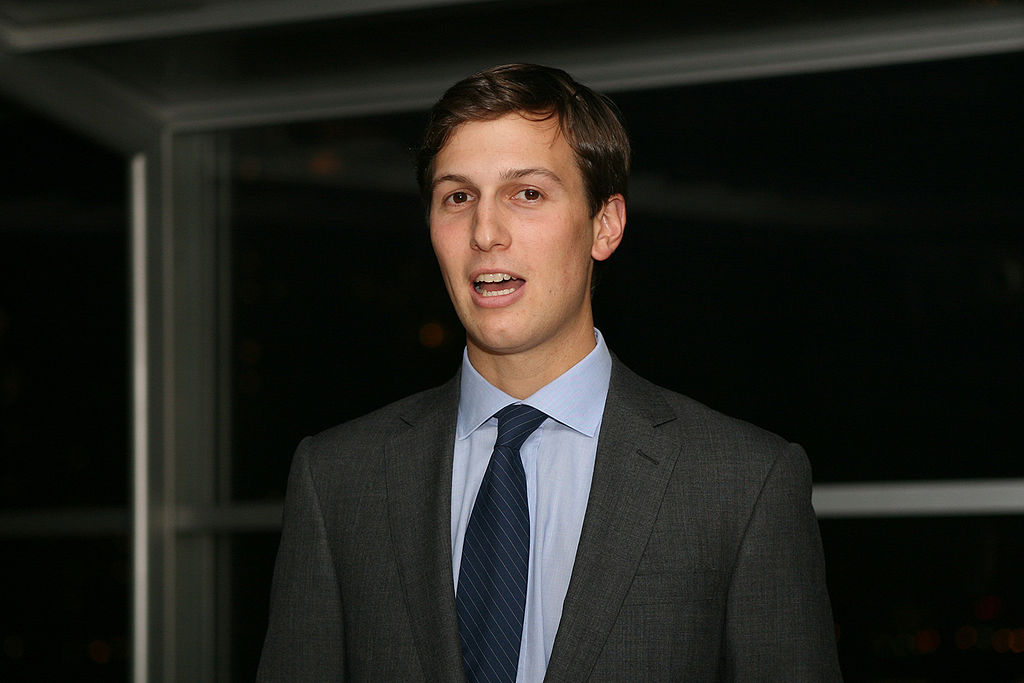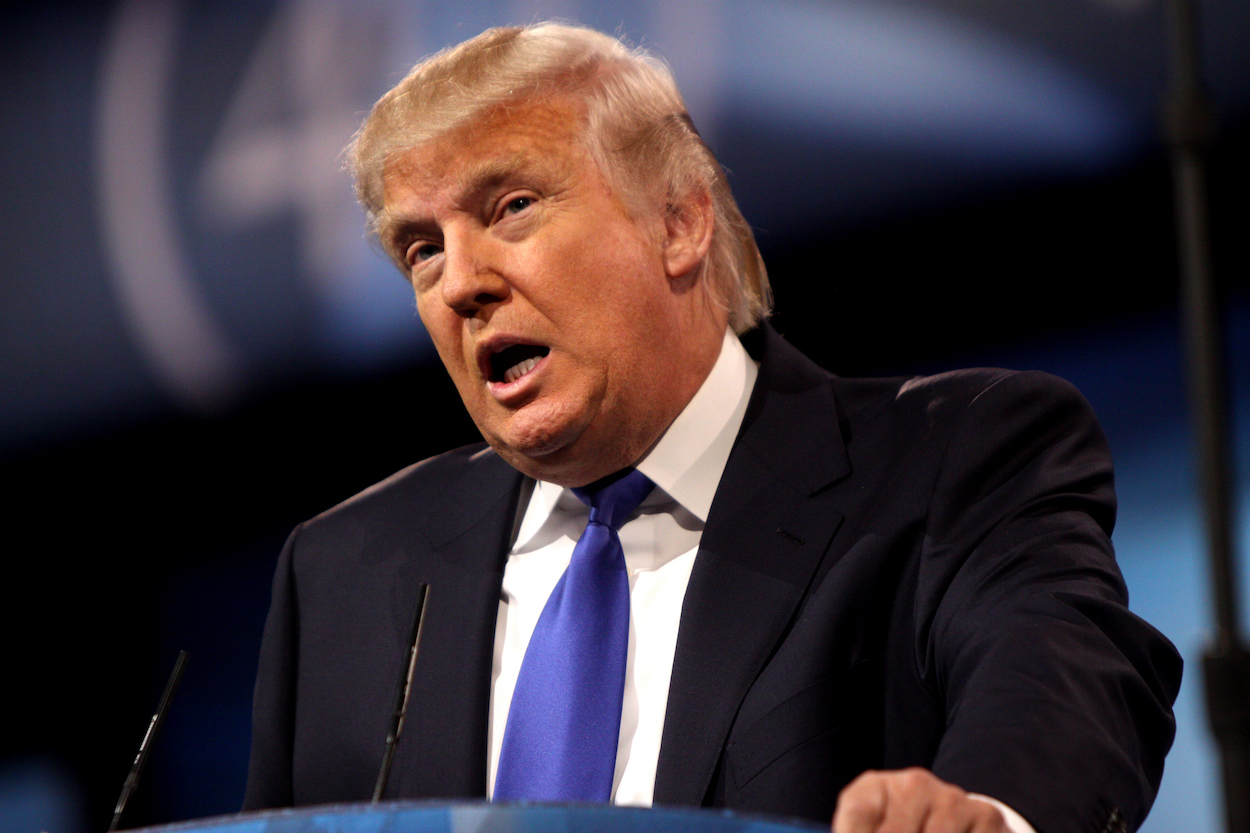by Brian Hioe
語言:
English
Photo Credit: Gage Skidmore/CC
IT IS STRANGE to claim that the Trump administration is a “normal” presidential administration regarding Taiwan simply because, after much hullabaloo, the Trump administration has not fundamentally shifted on its Taiwan policy. First, claiming normalcy is ignoring the rapid backpedaling of the Trump administration from the possibility of shifting on its Taiwan Policy that was raised early in its tenure. This backpedaling may have occurred because the administration might be shifting in a rapidly pro-China direction. Second, claims of normalcy fail to realize that the Trump administration is now widely perceived as unreliable in the Asia Pacific, leading to greater discussion of ways that Asia Pacific countries can move away relying on the US as a security guarantor against China. This is true of not just Taiwan. The Trump administration’s shift in a pro-China direction will therefore hasten the movement of Asia Pacific countries away from America under the Trump administration.
To begin with, part of the claim that the Trump administration is a “normal” presidential administration was heavily reliant on the idea that like many presidential administrations before it, the Trump administration would continue to dutifully sell arms to Taiwan. In particular, Trump had previously justified American support of Taiwan on the basis of Taiwan’s purchase of American arms. Now, with US-Taiwan arms sale in limbo at present one must question this claim.
 Jared Kushner. Photo credit: Lori Berkowitz Photography/CC
Jared Kushner. Photo credit: Lori Berkowitz Photography/CC
After the Trump-Xi meeting, US-China relations have improved significantly, which is preventing progress on US-Taiwan arms sales. Insofar as we can peer into the inner workings of the Trump administration, we can also observe that the confluence of forces within the Trump administration indicate the movement of the Trump administration in a more pro-China direction. Between the competing factions arrayed behind the hawkish Steve Bannon, who suggested that war between the US and China is inevitable, and Trump’s son-in-law, Jared Kushner, who is conciliatory to China, it seems Kushner has won. As a result, the Trump administration has swung towards toning down its anti-China rhetoric. Of course, one questions whether this has taken place because of the Kushner family’s substantive business dealings with China.
Regardless of the inner workings of the Trump administration, Asia Pacific nations have become spooked by the rapid turnabouts of the Trump administration. For example, after close to a decade of working towards the completion of the TPP as a way of cementing the Asia Pacific as an economic bloc capable of resisting China, the Trump administration rapidly withdrew from the deal, never mind that America was the TPP’s key architect. The fact that Asia Pacific countries are now proceeding with ratifying the TPP without America may indicate that Asia Pacific countries wish to salvage what they can from the deal by cementing ties with each other to counter China.
While the TPP is a dramatic example of American turnabouts, this perception of the irregular nature of the Trump administration is more and more widespread among not only Asian political leaders but members of the public. Trump is widely seen as dangerous by the publics of many Asian countries with longstanding historical alliances with the US, such as South Korea, Japan, and Taiwan. As elected political leaders ultimately answer to their publics, this will have large effects on the political behavior of Asian Pacific countries going forward.
The most dramatic example to date would probably be the the Trump administration’s reversals on the threat of North Korea. First, with North Korea threatening missile tests and even a potential nuclear test on key holidays, the Trump administration intimated that it might actually preemptively attack North Korea, causing great confusion. Then, after stating that it was sending the USS Carl Vinson and its attached carrier strike group to deal with the threat, it later came out that the USS Carl Vinson was actually heading in the opposite direction of the Korean Peninsula. This meant that the Trump administration had not only taken no action on the North Korean missile threat, but that it had lied outright about the issue.
 Donald Trump. Photo credit: Gage Skidmore/CC
Donald Trump. Photo credit: Gage Skidmore/CC
No surprise that the South Korean population lost faith in the Trump administration, upset at its handling of the manner, and has been vocal in criticisms of Trump ever since. With such responses coming from both the liberal and conservative camps, will have large effects on how South Korean leaders relate to America going forward. The same is true of other Asia Pacific countries, particularly Japan, in which the Trump administration has also caused great confusion about whether it seeks to strengthen or weaken the US-Japan security relationship. The administration’s suggestions that it may withdraw troops from American bases in Japan as well as threatening to label Japan a currency manipulator send mixed messages.
Indeed, no elected political leader in any Asia Pacific country can shrug off their public’s skepticism towards Trump, and Trump is already widely perceived as an ineffectual and dangerous buffoon by many Asian countries’ residents. But with such worries already present in public discourse, the Trump administration’s movement in a pro-China direction will only provoke further concern and probably lead to further skepticism regarding longstanding historical relations with the United States.
As a result, blind faith that the Trump administration will hew to the norm of international relations is unwarranted and does not attest to the facts. All evidence is to the contrary, and suggests that the Trump administration is moving in a pro-China direction, something which cannot be dismissed with the claim that all business is as usual. And either way, the flip-flops of the Trump administration have become something that Asia Pacific politicians need to respond to in order to answer to their publics. Whatever the Trump administration does going forward, going forward, there will be the rising possibility of Asia Pacific nations seeking to move away from America. The Trump administration leaning in a pro-China direction will only cement this move away from America under the Trump administration by Asia Pacific countries.

